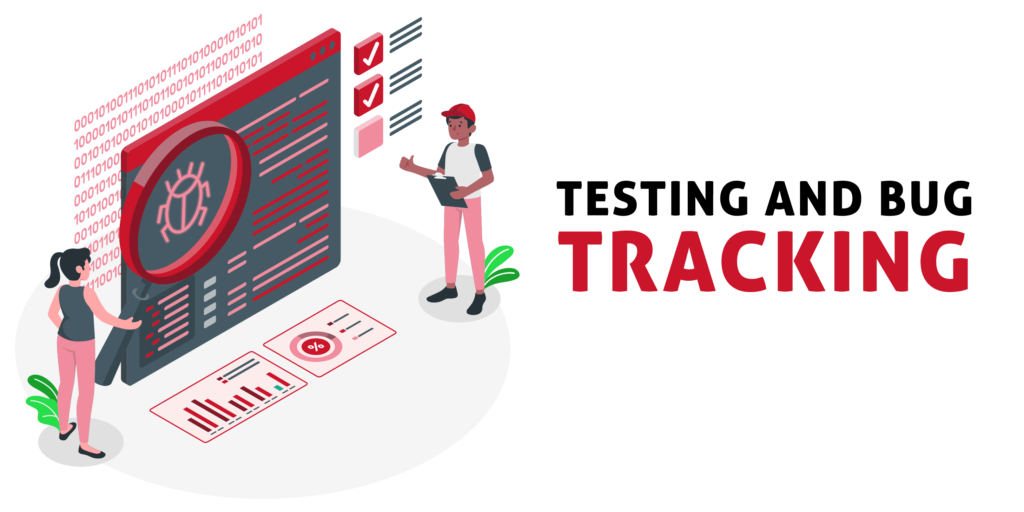What Does a Quality Analyst (QA) Do?
4 mins to read
admin


4 mins to read
admin

Quality Analysts (QAs) are essential contributors to ensuring the delivery of high-quality products and services. With their expertise, they play a vital role in monitoring and evaluating processes, identifying flaws, and driving improvements.
In this article, we will explore the responsibilities, skills, and significance of Quality Analysts in today’s business landscape.
In today’s fast-paced business and technological landscape, delivering products and services of the highest quality is paramount. Quality Analysts (QAs) are professionals who ensure that businesses meet industry standards and exceed customer expectations.
Their role is multifaceted, encompassing various tasks, including software testing, process evaluation, and improvement. Let’s delve deeper into the world of Quality Analysts and explore their responsibilities.

Quality Analysts are responsible for assessing the quality and efficiency of processes, products, and services within an organization. They collaborate closely with development teams, stakeholders, and clients to ensure that the end results meet or exceed expectations.
QAs utilize their analytical skills to identify issues, track bugs, and suggest improvements. They act as a bridge between different teams, facilitating effective communication and problem-solving.
Maintaining high-quality standards requires QAs to follow established processes and methodologies. They develop test plans, define test cases, and execute them to identify defects or deviations. By utilizing a combination of manual and automated testing techniques, QAs evaluate software applications, websites, or other deliverables.
QA processes may vary based on industry, project requirements, and development methodologies such as Agile or Waterfall.

A significant aspect of a Quality Analyst’s role is testing applications or systems to identify bugs or defects. They perform functional, integration, regression, and performance testing to ensure the product functions as intended.
QAs employ various tools to track and document identified issues, allowing development teams to prioritize and address them efficiently.
Effective collaboration between Quality Analysts and development teams is crucial for delivering high-quality products. QAs work closely with developers, providing feedback and suggesting improvements throughout the development lifecycle.
They participate in meetings, share their observations, and contribute to decision-making processes to enhance the overall quality of the product.

Quality Analysts meticulously document and report issues encountered during the testing phase. They maintain comprehensive records of test results, including identified defects, their severity, and steps to reproduce them.
Clear and concise reporting enables development teams to understand and resolve issues efficiently, ensuring a smoother development process.
Continuous improvement lies at the core of a Quality Analyst’s responsibilities. They constantly analyze processes and procedures to identify areas that require enhancement. By leveraging their analytical skills, QAs propose process improvements, implement best practices, and optimize workflows.
Their objective is to streamline operations, minimize errors, and enhance overall efficiency.

Quality Analysts require a diverse skill set to excel in their role. They should possess strong analytical and problem-solving abilities to identify and resolve complex issues. Excellent communication skills are essential for effective collaboration with different stakeholders.
Additionally, attention to detail, time management, and the ability to adapt to changing requirements are crucial qualities for a successful Quality Analyst.
Quality Analysts play a vital role in ensuring customer satisfaction and maintaining a competitive edge in the market. By conducting thorough testing and analysis, they prevent the release of faulty products or services, safeguarding the reputation of the organization.
Quality Analysts help businesses adhere to industry standards, regulatory compliance, and customer expectations, ultimately contributing to increased customer loyalty and improved profitability.

Quality Analysts employ a wide range of tools and technologies to carry out their responsibilities efficiently. These tools include bug tracking systems, test management software, automated testing frameworks, and performance monitoring tools.
QAs continuously update their skills to leverage the latest technologies and methodologies to deliver optimal results.
Quality Analysts encounter various challenges in their day-to-day work. They must adapt to rapidly evolving technologies and keep up with industry trends. Balancing time constraints, managing multiple projects simultaneously, and maintaining effective communication can also be demanding.
However, with the right skills and mindset, QAs can overcome these challenges and deliver exceptional results.
Quality Analysts play a pivotal role in ensuring the delivery of high-quality products and services. Their responsibilities encompass testing, bug tracking, process enhancement, and collaboration with development teams.
By leveraging their skills and expertise, Quality Analysts contribute to the overall success and competitiveness of businesses across various industries.
Tags
